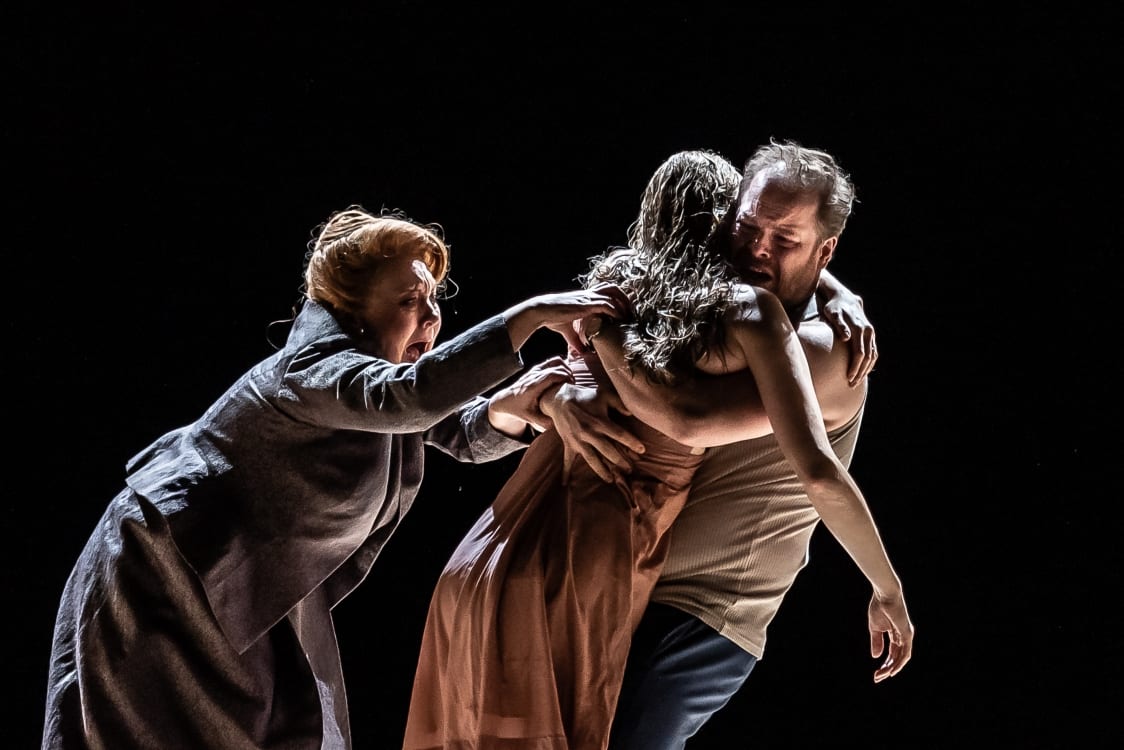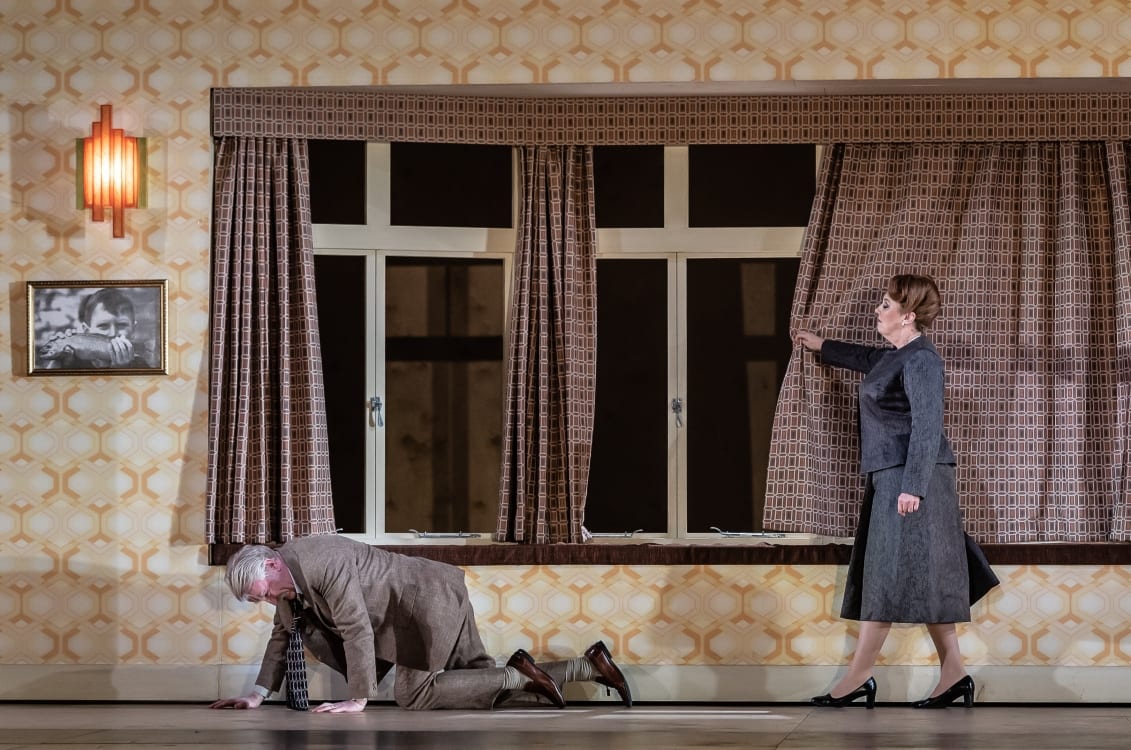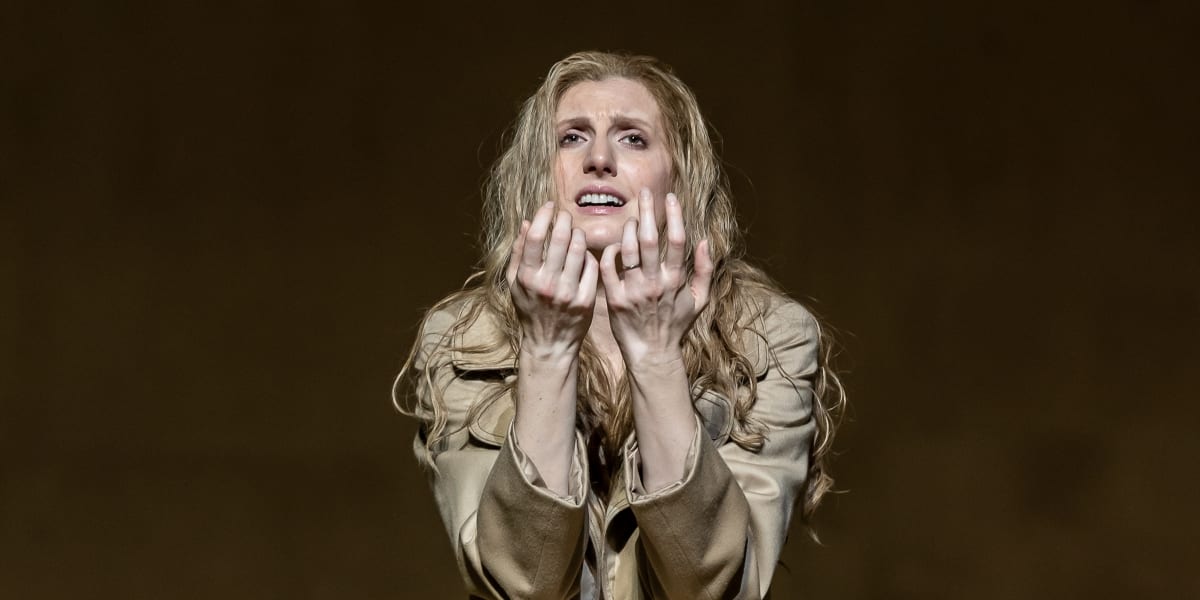This austere opera by Janacek never offers an easy evening in the opera house. Richard Jones’ new production for the Royal Opera certainly does justice to the searing portrait of stifling small town life and its effect on the fate of the fragile and neurotic Katya, unhappy wife of Tichon Kabanov. But the music often sends us glimpses of the other life that Katya yearns for, and this intelligent production doesn’t allow the gloom of the story to drown the musical glories of the opera.

Katya is married to the feeble and uncertain Tichon who is dominated by his widowed mother, Kabanicha. She clearly disapproves of the beautiful Katya and, when Tichon has to leave for a business trip, she finds reasons to disapprove of Katya’s lack of misery – “a good wife weeps and wails when her husband is away”. Katya is attracted to local layabout Boris Grigorjevic and, given her husband’s indecisiveness and her mother-in-law’s absurd strictures, she allows herself to be overwhelmed by her desire for him – and for some escape from her marital prison. She soon regrets her fling with Boris and confesses to her husband in front of the villagers, making things worse and, as her sanity begins to waver and a storm rages around her, she chooses oblivion.
Katya is played by the American soprano Amanda Majeski and her performance is compelling. From the beginning we see just how impossible her situation is and she brilliantly conveys both Katya’s doomed attempts to work out what a good wife might look like in this rigid and prurient community and her compulsion to sample passion in the arms of a man she hardly knows. Her singing is superb from her first notes and reaches heights of lyricism in her duets with Boris. Pavel Cernoch plays Boris with a plenty of raffish charm but it is no surprise that he proves incapable of supporting Katya when her self-doubt kicks in. Susan Bickley plays a fearsome Kabanicha, displaying a hard-grained meanness that makes us feel that if Katya wasn’t there to torment she might be torturing small defenceless creatures and running a sideline as a dominatrix. In this poisonous climate the sunny love affair between Varvara and Kudrjas – finely portrayed by Emily Edmonds and Andrew Tortise – seems to exist in a different world but the folksy duets between them provide a telling contrast with the more complex and nuanced passion of Katya and Boris.
Richard Jones’ staging scores many ‘pluses’ but there are some surprising lapses too. The setting – some sort of sixties small town which could be in Surrey or maybe Slovakia – provides the sort of climate in which men in flared trousers peering in through bay windows at domestic misery makes for a grim sort of sense. But the occasional use of a set that looks like the inside of an enormous wooden cigar box – rather than the suburban sitting room with the display cabinets of tacky trophies – adds nothing to the already well established sense that Katya is trapped. The storm scene is a mess and the final appearance of the drowned body of Katya carried by three local lads makes for an uncomfortable final moment.

Edward Gardner returns from Bergen to conduct and provides a persuasive reading of a score that is not to everyone’s taste but which sounded at this performance to have real lyrical beauty – some may feel at the cost of the harshness that other conductors emphasise to match the cruelty of the story. As ever the orchestra and chorus of the Royal opera meet all the challenges of a demanding score …. and more. This is a fine production with some outstanding singing but go to see it ready for a story that provides a bleak message about the capacity of human beings to fail and hurt each other.

